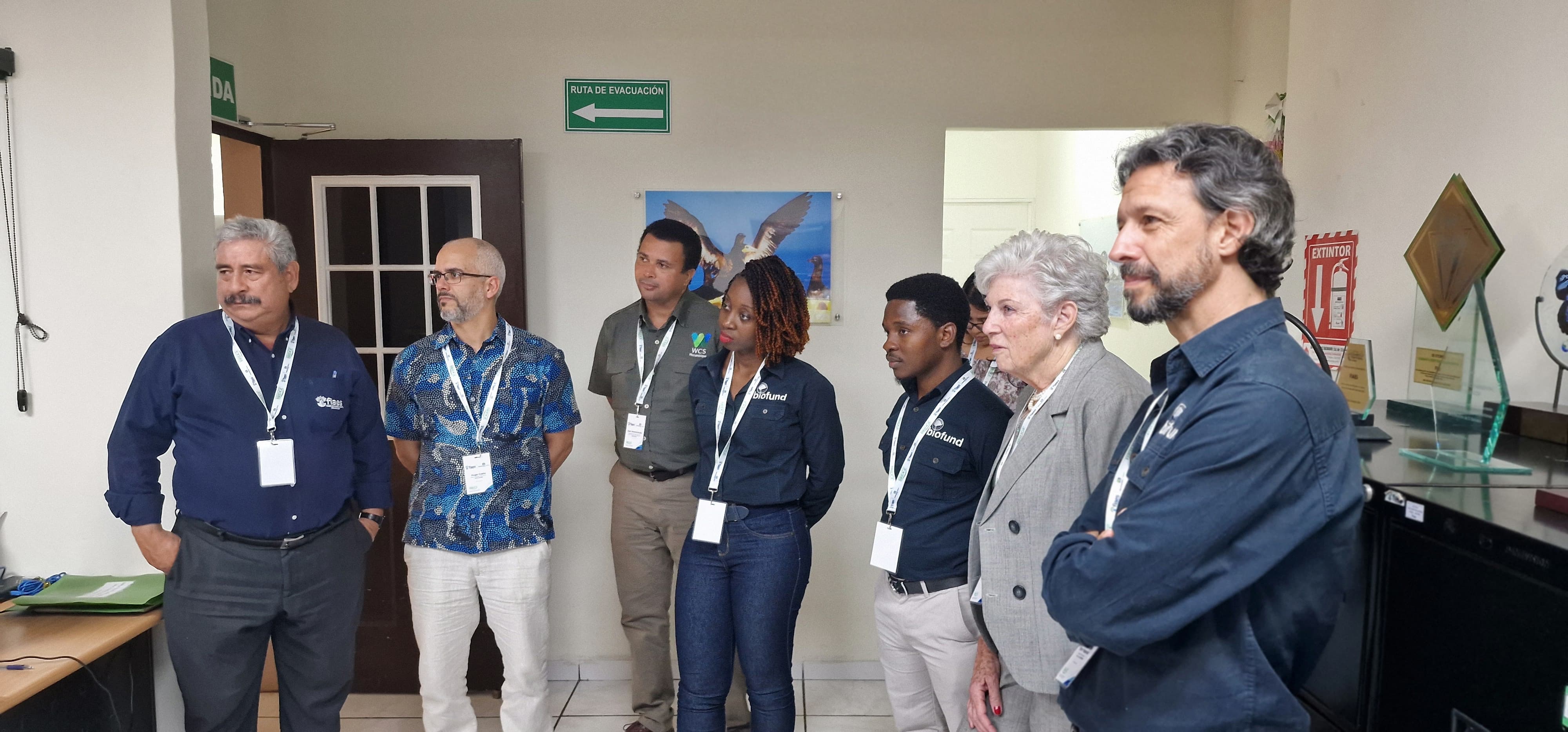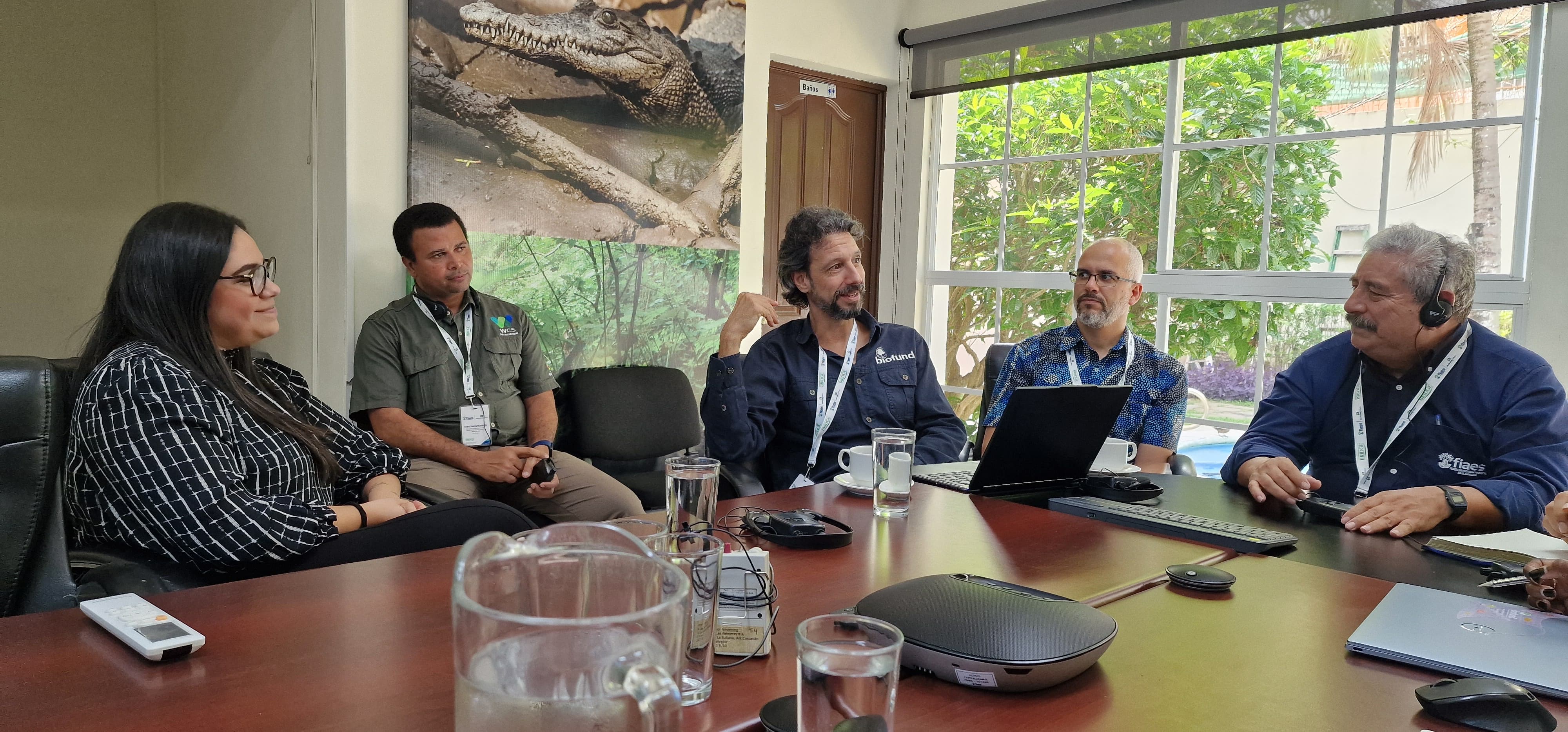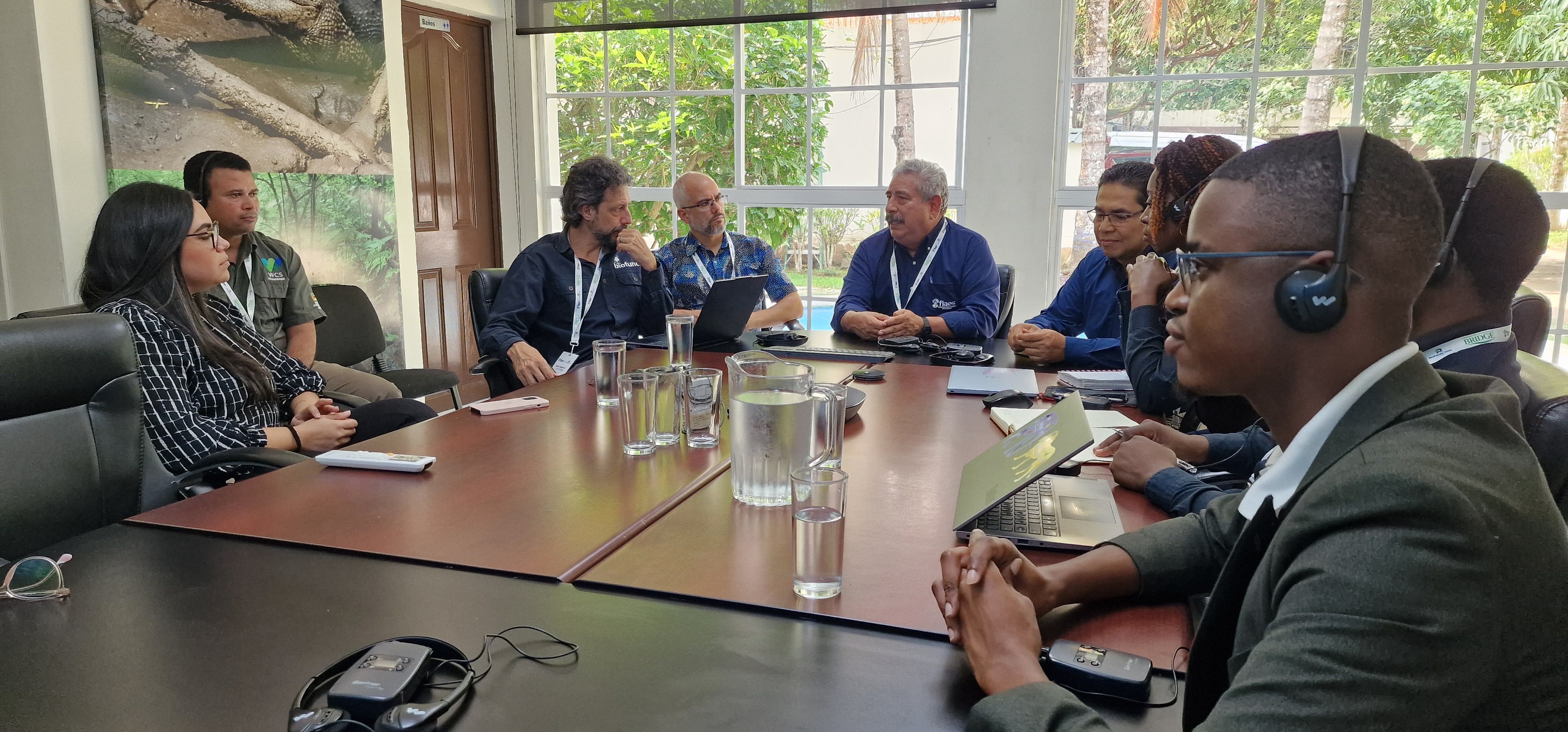The Foundation for the Conservation of Biodiversity (BIOFUND) and the Wildlife Conservation Society (WCS-Moçambique), partners of the COMBO+ Program, embarked on an inspiring exchange of experiences with Fondo de Inversión Ambiental de El Salvador (FIAES). The visit was essential to understand the ten years of success of this environmental Trust Fund in the mechanism of implementation of biodiversity offsets in El Salvador, Central America.
Between May 27 and 31, 2024, six members of the COMBO+ Program from the Mozambique delegation, three from BIOFUND and three from WCS took part in the face-to-face phase of the BRIDGE Project Mentorship Program, a RedLac and CAFÉ initiative, launched in 2022. The aim of this mentorship program is to boost the process of conservation and restoration of ecosystems and landscapes with the contribution of the private sector through the biodiversity offsets mechanism.
During the visit, the Mozambican delegation had the opportunity to interact with the FIAES Conservation Trust Fund staff, Ministerio de Medio Ambiente y Recursos Naturales de la República de El Salvador (MARN), managers and technicians from the protected areas, project proponents and implementers of biodiversity offset actions on the ground. The team took part in several field visits, where they were able to observe conservation actions for threatened and endangered species and restoration activities implemented through the biodiversity offset mechanism.
The visit to El Salvador represents an important learning milestone for Mozambique, at a time when the country is about to begin the effective implementation of biodiversity offsets in the country, following the publication of the Directive on Biodiversity Offsets (Ministerial Diploma No. 55/2022 of 19 May).
This international collaboration promises to strengthen conservation and restoration practices in Mozambique, using the valuable lessons learned in El Salvador, promoting a more sustainable future for biodiversity.




